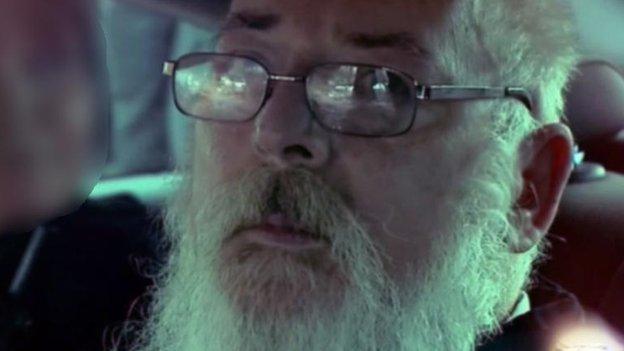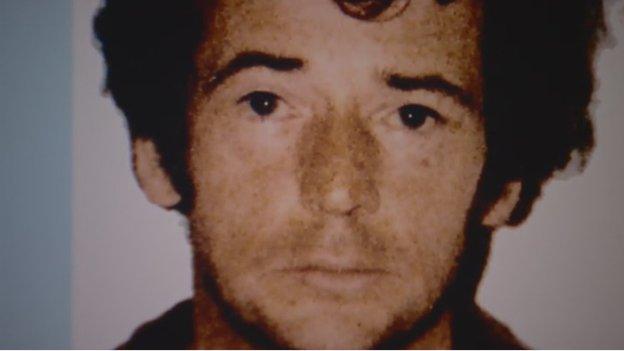How law change jailed serial killer Angus Sinclair
- Published

Angus Sinclair committed the murders of Helen Scott and Christine Eadie 37 years ago
The conviction of Angus Sinclair for the so called 'world's End' murders has focussed attention on the change to the law that made his prosecution possible.
For nearly eight centuries the rule against double jeopardy protected those acquitted of an offence from facing a re-trial.
Getting its case right first time was seen as a critical part of the burden placed on a prosecution which could, after all, bring all the resources of the state to bear against an individual defendant.
So what changed? Growing public concern over high profile murder cases including that of Stephen Lawrence in 1993 in England, and the murder and rape of Helen Scott and Christine Eadie in Edinburgh in 1977 provided the momentum.
In both cases prime suspects had faced trials and been acquitted, but there was a strong sense that justice had not been done.
That was articulated by Sir William Macpherson whose 1999 report into the Stephen Lawrence case included a proposal that re-trials of acquitted defendants should be allowed where compelling new evidence, not available at the original trial, is found.
Forensic advances
But perhaps above all change was driven by major advances in forensic science.
Once the capability for identifying powerful evidence not available at the time of the original trial was clear, the scientific case for changing the old rule, became overwhelming.
In the 'CSI' age, justice required that such evidence should be put before a court.
The rule was abolished for a range of serious crimes in 2005 in England and Wales. Northern Ireland followed suit, and Scotland did so in 2011.
Some lawyers and civil liberties groups feared that any change to the long established rule would allow the prosecution a 'second bite at the cherry', and could lead to 'persecution' of an individual rather than their prosecution.
To prevent that, safeguards were put in place so that a second trial would only take place if the new evidence was also 'compelling'.
Few now question that the change to the 800-year-old rule that has allowed one of the killers of Stephen Lawrence, and Helen Scott and Christine Eadie's killer to be brought to justice, is a very good thing.
- Published14 November 2014

- Published14 November 2014
